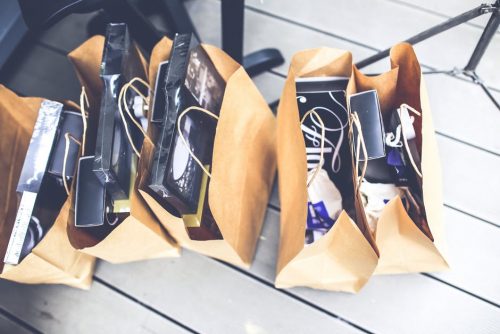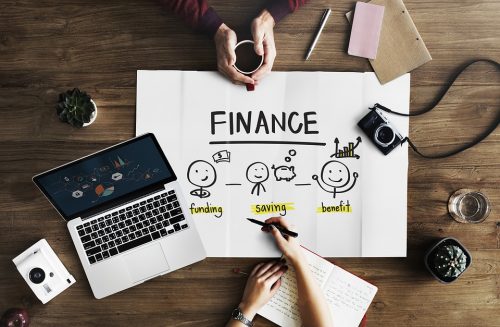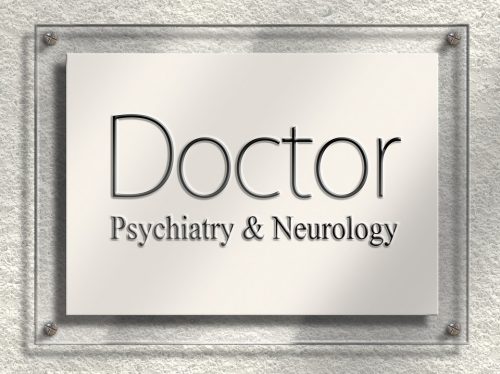Spending too much may just be considered a disease! Have you ever bought something out of just the desire to purchase but in the end regretted it? Is that considered obsessive spending? Are you a practical spender or do you find yourself grabbing things off shelves like one of the thousands of obsessive shoppers in the world?
The diagnostic and statistical manual of the American Psychiatric Association reports that excessive spending and shopping are considered behavioral addictions that require help from a mental health professional. It apparently manifests in people who have negative emotions or low self-esteem. Some of them cope by engaging in compulsive buying to cover their personal distress and other impulse control disorders. They may also have more serious mental health conditions such as mood disorders, eating disorders, bipolar disorder, borderline personality disorder, and substance use disorders, which require immediate psychiatric treatment.

How serious is compulsive buying when it comes to your mental health, and is there treatment for it?
I can recount countless seasons when my mother was beside herself scrambling to get the perfect gifts for each of us in the family. She was one of the thousands of compulsive shoppers in the world. The stress to fulfill the ever-growing list of gifts oftentimes overcame the joy that is supposed to be at the root of the holidays. — Azadeh Aalai Ph.D.
We engage in shopping sprees at some point, but some Americans are suffering from what we call compulsive buying and buy unnecessary items that they don’t need – they just have the urge to compulsively shop. These people lack impulse control and start compulsively shopping from their hard-earned money and spend on irrelevant items like the ninth pair of shoes, new gadgets, and such. Some of them max out their credit cards! They do excessive shopping to satisfy their emotional needs (the negative feelings) which can only last a moment. Most compulsive buyers regret purchasing something out of impulse, resulting in the desire to do it again hoping they can buy something more fulfilling; hence, this often becomes a vicious cycle of compulsive buying that can generate a lot of financial anxiety!
Addictive disorders, such as compulsive buying disorder, are characterized by repetitive and compulsive behavior that can be difficult to control. It is a subtype of addictive disorder that refers to excessive shopping behavior that results in significant distress or impairment. Diagnosing this disorder requires a careful assessment of a person’s shopping habits and the presence of psychiatric comorbidity, as excessive shopping often co-occurs with other psychiatric conditions. For instance, someone with control disorders might also experience bipolar disorder or have other kinds of anxiety disorders. Treating compulsive buying typically involves cognitive-behavioral therapy, along with pharmacological interventions such as selective serotonin reuptake inhibitors (SSRIs) for individuals with significant psychiatric comorbidity.
A person with no control in shopping may experience anxiety which can cause him to feel negative emotions, like worry or fear for uncertain reasons.
According to clinical comparison research done by APA to determine the clinical characteristics of other behavioral addictions using diagnostic criteria (DSM IV), people who have alcohol dependence, sex addiction, substance abuse, and gambling disorder show significant comorbidity.
On the other hand, multiple studies express that there are no significant differences in terms of other addictive behaviors between people with low and high educational levels among the general population.
As one of many health conditions, compulsive buying can be treated with a combination of cognitive behavioral therapy and group therapy, particularly for those with personality disorders and Axis II disorders. While many obsessive shoppers may engage in frequent shopping or experience manic episodes, treatment of compulsive buying can help make it a normal buying behavior and reduce its negative impact on one’s life. It’s important to seek professional treatment to effectively manage the compulsive buying disorder.
Their anxiety may result in shopping addiction in the hopes of appeasing the feeling of nervousness.
Depression And Excessive Shopping
A person may feel down and sad that he may find happiness in obsessive shopping for unnecessary items. This may give them satisfaction and temporary relief from their depression and other negative emotions.

Obsessive purchasing may improve a person’s low self-esteem and overall mental health when he engages in spending sprees. However, it’s a short-term mental health boost. Impulse control disorder is a behavioral addiction that is considered a mental health condition, as it may result in other addictions and mental disorders like mood disorders, alcohol abuse, and even gambling addiction.
He thinks that spending money makes him feel good despite his financial problems
People who have found compulsive shopping to be an avenue of distraction use compulsive buying as an emotional regulation system. It is the thread or the glue that holds the emotional regulation system together when a person would typically “fall apart” or fragment. — Angela R. Wurtzel, MA, MFT
There is an obsession with having a new item. A person may see or hear about a must-have and doesn’t stop until he gets it resulting in obsessive buying behavior.
It is a reaction to the uncontrollable urge to purchase something. A person may not think about his action twice because he believes that purchasing a particular item will satisfy or fulfill his emotional need
Too much spending can affect us financially and also damage our health — physical and mental. It may be the reason why some of us do not have savings or cannot afford to buy the necessary things in life such as a house, car, or medical insurance. Compulsive buyers often spend the money they get thinking they’ll have another at the next payday. It will cause them to not save for more essential things.
Just like other mental health problems like eating disorders and substance addictions, excessive shopping and compulsive buying provides a certain temporary “happiness” to a person with this problem.
There is an emotional need that gets fulfilled by giving into the compulsive buying disorder.
A person might get anxious and distressed.
The calming focus of gratitude can help–at least with impulsive spending. A few seconds of thankfulness is not only a mood elevator, it’s a fast and simple mindfulness exercise that improves focus. — Kit Yarrow Ph.D.
Benefits Of Undergoing Therapy For Compulsion and Urge Buying
Therapy can provide self-awareness making you realize the root of the problem. You will then have the opportunity to confront or address the primary cause of your overspending behavior. It can be your childhood or some traumatic events in life.
Emotional Assistance Support
Compulsive buyers are emotionally distressed by their buying disorder. There is satisfaction in purchasing things without thinking twice. When you undergo therapy, you will have constant emotional support and a reminder of what you need to do to fight the impulse.

Provides Reality Check
Therapy can make you realize the effects of compulsive buying. Are you drowning in debt? Are you not able to save because of overspending? Do you have an emergency fund for unexpected expenses? These are among the questions that you might be able to answer.
Some may realize that the answer to all these is NO!
Final Thoughts
If you can’t hold back the urge to buy things you don’t actually need, consider seeking professional help because this is one of many impulse control disorders. Overspending is a serious matter that needs attention. It hinders us from financial stability.
Finding relief, especially for youngsters who are now in their late adolescence and are having a hard time better understanding their state, can be tough.
The world of psychiatry has taken an interest in the impact of consumer culture on compulsive buying, particularly among late teens and young adults. While many people enjoy shopping as a pastime, clinical trials and reviews of excessive shopping suggest that it can lead to significant financial difficulties and even marital conflict. Treatment options such as Debtors Anonymous and promoting financial independence may help those struggling with excessive shopping.
In addition, we have to admit that money often measures success, and without it, there is a limit to the things we can do, and we may have no access to the best things in life such as excellent health care and longevity.
But we have to stop novelty seeking. Disposable income is not the answer to problems. What we need is professional help that stems from a place of compassion, patience, and healing.
FAQs
-
Is Compulsive Shopping A Disorder Or A Mental Health Condition?
-
What Is Compulsive Spending?
-
What Do You Call An Obsessive Shopper?
-
Is Obsessive Spending Considered OCD?
-
Why Am I Obsessed With Purchasing Things?
-
How Do I Stop My Addiction To Shopping?
- Is compulsive shopping a symptom of bipolar?
- Why do I spend money impulsively?
- What are the signs of a Shopaholic?
- Can you be addicted to purchasing things?
- What is an example of compulsive buying behavior?
- Is compulsive shopping a symptom of depression?
- What is compulsive vs. impulsive shopping?
- Is compulsive shopping a symptom of ADHD?
- Which disorder is similar to compulsive shopping?

